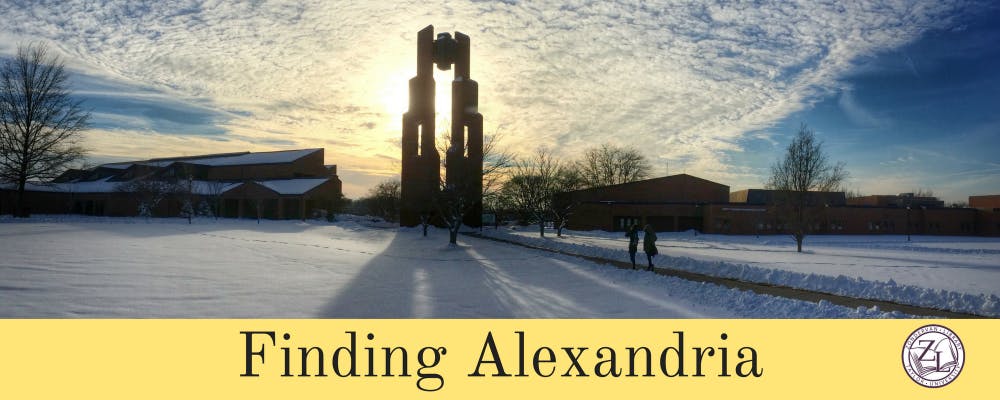By Peyton Smith | Echo
Zondervan Library is launching Finding Alexandria, a new undergraduate research competition aiming to inspire applicants to pursue their interests. The goal of the competition is to encourage participants to become familiar with and utilize library resources.
Finding Alexandria opened for submissions several weeks ago and is still taking applicants until Nov. 18th. With $600 in cash prizes, the competition has piqued interest around campus. Finding Alexandria has a simple three-step application process: 1) Participants submit a one-page proposal, then 2) the authors of the top nine proposals go on to write a 15-20 page paper. Finally, 3) the top three contestants will present their research at the Graduate School Fairat a date to be decided.
Finding Alexandria derives its name from the historical lost libraries of Alexandria. The goal of Shawn Denny, information services librarian and project overseer, is for Taylor students to explore the hidden treasures within their own library. Finding Alexandria is largely the brainchild of junior Camy Hanna and senior Rebecca Schriner, marketing specialists for the library who are currently directing the project.
Denny hopes the competition will go above and beyond the here and now: "What a student can learn from this experience is useful for succeeding in current classwork and future graduate work and builds a foundational set of skills useful for vocational, civic, missional and personal excellence."
Undergraduate students in any discipline who have done research, are in the process of researching, or have an inner desire to start researching alongside a faculty member are eligible to submit. Participants may also submit former or current coursework or independent research projects, and are allowed to work in small groups on a single proposal.
Here's how to get started:
Step 1: Start typing a one-page proposal. Submissions close Nov. 18, 2016. The proposal consists of a summary of the research project in addition to signed agreements from group members and supporting faculty members.
A panel of judges will review these proposals and choose three projects from each school (i.e., The School of Humanities, Arts and Biblical Studies; The School of Natural and Applied Sciences; and The School of Social Sciences, Education and Business) to proceed in the competition, totaling nine projects.
Step 2: Nine contestants will write a 15- to 20-page research project. The project will contain the information compiled while researching and a poster for the university's Celebration of Scholarship. This portion is due by April 1, 2017.
The judges will review these papers and choose one winner from each school, narrowing the field to three finalists.
Step 3: The three finalists will compete for cash prizes and add a 10- to 15-minute presentation on their research process and conclusions. These presentations will take place during the Finding Alexandria Graduate Fair in April 2017(TBA).
The review panel will determine which projects receive the first, second and third place prizes. The first place project will receive a $300 cash prize. Second place will receive $200, and third place will receive $100.
The end-of-year Graduate School Fair will be hosted in the library with the help of the Calling and Career Office to both showcase the winners of the contest as well as give students a chance to peruse a variety of graduate school programs.
Participants' may publish their research with their graduate school applications if students are willing to do so. The Finding Alexandria contest and Graduate Fair highlight the numerous publishing opportunities in post-higher education.
"Good research skills are skills that are important now to be a successful student," Linda Lambert, Zondervan librarian said. "But research skills are transferable to many phases and aspects of life in the future."






